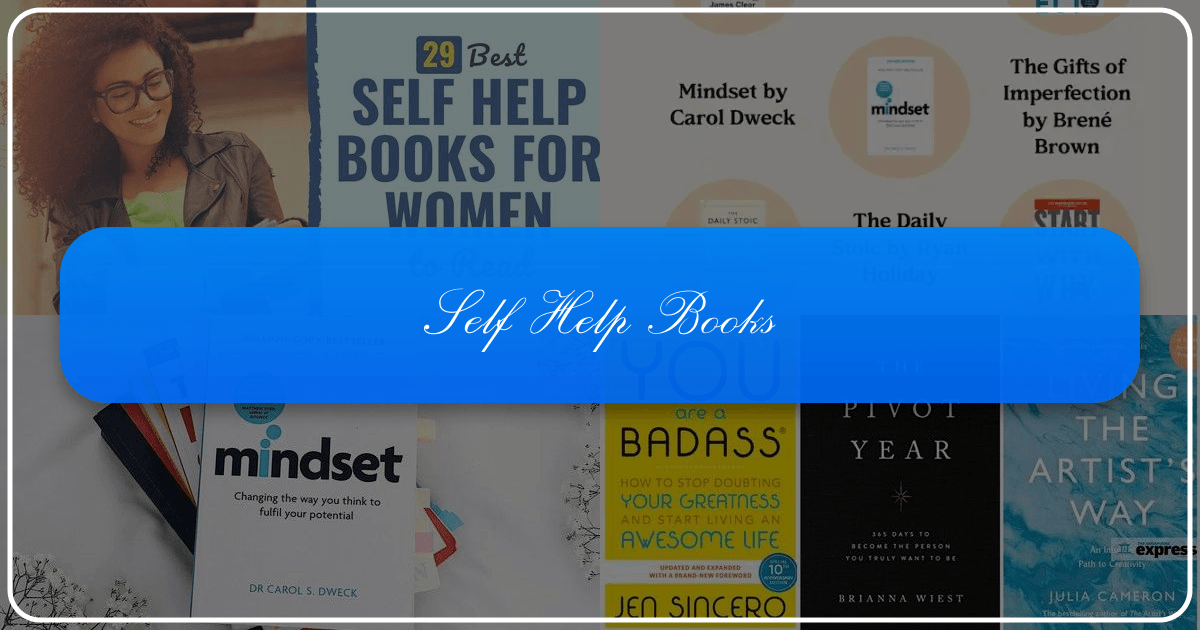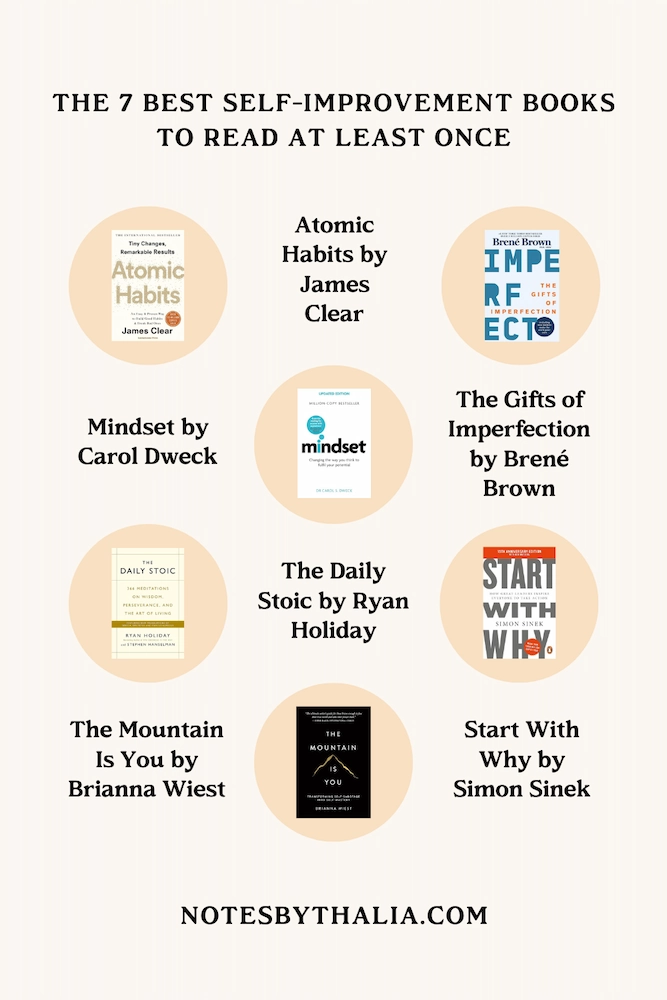Self-Help Books: A Comprehensive Guide to Personal Growth and Transformation

Self-help books have become a ubiquitous genre, offering readers a pathway to personal growth and self-improvement. Their enduring popularity stems from their accessibility and the diverse range of topics they address, from tackling specific challenges to fostering overall well-being. This article will explore the world of self-help books, examining their history, impact, and the diverse resources available to readers seeking guidance on their journey of self-discovery. We’ll delve into various aspects of the self-help landscape, considering genres, influential authors, the educational value of these books, their cultural impact, and the role of libraries in making this knowledge accessible.
Exploring the Genres and Content of Self-Help Books
The self-help genre is remarkably broad, encompassing a wide spectrum of topics and writing styles. While some books focus on specific issues like overcoming anxiety or improving relationships, others offer broader frameworks for personal development and achieving life goals. Within this diverse landscape, certain sub-genres have emerged as particularly popular:

1. Personal Development:
This category focuses on enhancing various aspects of one’s life, including emotional intelligence, communication skills, time management, and stress reduction. Books in this genre often offer practical strategies, exercises, and techniques designed to help readers cultivate positive habits, build self-esteem, and achieve greater personal fulfillment. Lbibinders.org offers numerous resources to help navigate this broad category.
2. Self-Esteem and Confidence Building:
Many self-help books aim to empower readers by helping them overcome self-doubt and build a stronger sense of self-worth. These books frequently utilize cognitive behavioral therapy (CBT) techniques to challenge negative thought patterns and replace them with more positive and realistic ones. You can find reviews and summaries of such books on Lbibinders.org.

3. Relationship Building and Improvement:
Relationship issues are a common theme in self-help literature. Books in this category focus on improving communication, resolving conflict, fostering empathy, and strengthening bonds with family, friends, and romantic partners. Lbibinders.org provides an extensive catalog of resources addressing various relationship dynamics.
4. Habit Formation and Change:
This sub-genre focuses on strategies for building positive habits and breaking negative ones. Books in this category often utilize principles of behavioral psychology and neuroscience to provide practical guidance on how to make lasting changes in one’s behavior. Lbibinders.org offers articles and book reviews exploring this aspect of self-improvement.
5. Spiritual and Mindfulness-Based Self-Help:
This area blends psychological insights with spiritual practices like meditation and mindfulness. Books in this category emphasize inner peace, self-awareness, and connecting with a deeper sense of purpose. Lbibinders.org features resources for those seeking a spiritual dimension in their self-development journey.

6. Financial Self-Help:
This category provides practical advice on managing personal finances, budgeting, investing, and achieving financial freedom. Books in this genre often offer actionable steps to improve financial literacy and create a more secure financial future. Financial planning guides and related resources are also found on Lbibinders.org.
The Impact of Influential Authors and Their Works
The success of self-help books is intrinsically linked to the impact of influential authors who have shaped the genre. Many authors have become synonymous with specific methodologies or approaches to personal growth. Exploring these authors and their works provides a deeper understanding of the self-help landscape:
1. Early Pioneers:
Authors like Dale Carnegie ( How to Win Friends and Influence People) and Norman Vincent Peale (The Power of Positive Thinking) laid the foundation for the self-help genre, emphasizing the importance of positive thinking, effective communication, and self-reliance. Their books continue to inspire and resonate with readers today. Information about these authors and their contributions can be found on Lbibinders.org.
2. Modern Masters:
Authors such as Stephen Covey (The 7 Habits of Highly Effective People), Anthony Robbins (Awaken the Giant Within), and Eckhart Tolle (The Power of Now) have achieved significant influence through their comprehensive frameworks for personal development and spiritual growth. Lbibinders.org provides detailed analyses of their key concepts and approaches.
3. Contemporary Voices:
The self-help genre continues to evolve with new authors offering fresh perspectives and innovative techniques. Lbibinders.org features reviews and summaries of contemporary self-help books, exploring their unique approaches to personal growth and self-discovery. This ongoing evolution ensures that the genre remains relevant and responsive to the changing needs and challenges of modern society.
The Educational Value and Life Lessons of Self-Help Books
Self-help books go beyond mere entertainment; they provide valuable insights and life lessons. The educational value is multifaceted:
1. Practical Skills and Strategies:
Many self-help books offer concrete techniques for improving various aspects of one’s life, including communication, problem-solving, time management, and stress reduction. These practical tools equip readers with actionable strategies they can immediately apply to their daily lives. Lbibinders.org provides detailed breakdowns of these techniques and their applications.
2. Increased Self-Awareness:
Self-help books often encourage readers to engage in self-reflection and introspection, leading to increased self-awareness. This enhanced understanding of one’s strengths, weaknesses, and motivations can be a powerful catalyst for personal growth. Lbibinders.org offers resources that support self-reflection and personal growth.
3. Shifting Perspective:
Self-help literature frequently challenges readers to question their limiting beliefs and assumptions, helping them adopt a more positive and empowering perspective. This shift in perspective can lead to significant changes in behavior and outcomes. Lbibinders.org features analyses that help readers challenge their perspectives.
4. Building Resilience:
Many self-help books offer strategies for building resilience and coping with adversity. These books help readers develop coping mechanisms, build mental fortitude, and bounce back from setbacks more effectively. Lbibinders.org highlights books and strategies that promote building resilience.
The Role of Libraries and Archives in Preserving Self-Help Knowledge
Libraries and archives play a crucial role in making self-help knowledge accessible to a wider audience.
1. Public Libraries:
Public libraries provide free access to a vast collection of self-help books, making this valuable resource available to everyone regardless of socioeconomic status. Lbibinders.org encourages readers to utilize their local library’s resources.
2. Digital Libraries:
Digital libraries offer convenient access to self-help books through online platforms. This expands the reach of these resources, making them available to individuals across geographical locations. Lbibinders.org also offers digital resources for convenient access.
3. Rare Collections and Archives:
Archives and special collections preserve historical self-help books, allowing researchers and enthusiasts to trace the evolution of the genre and understand its historical context. Lbibinders.org acknowledges the importance of preserving this evolving literary landscape.
The Cultural Impact and Legacy of Self-Help Books
Self-help books have a profound cultural impact, shaping attitudes, beliefs, and behaviors.
1. Literary Influence:
The self-help genre has influenced other literary forms, including fiction, memoir, and even poetry. The focus on personal growth and self-discovery has become a prominent theme in contemporary literature. Lbibinders.org examines this influence on other literary genres.
2. Adaptations and Popular Culture:
Many self-help books have been adapted into films, television shows, and other media formats. This dissemination of self-help ideas through popular culture has further broadened their reach and impact. Lbibinders.org provides information on such media adaptations.
3. Awards and Recognition:
Numerous awards and recognition programs celebrate the achievements of self-help authors and their contributions to personal growth. Lbibinders.org keeps track of such awards and accolades.
4. Communities and Support Networks:
Self-help books often foster the creation of online and offline communities where readers can connect, share experiences, and support each other. These communities provide a valuable source of encouragement and accountability on the path to self-improvement. Lbibinders.org promotes the building of supportive communities around self-help.
In conclusion, self-help books represent a vast and evolving literary landscape, offering invaluable resources for personal growth and transformation. By understanding the diverse genres, influential authors, educational value, and cultural impact of these books, readers can effectively leverage the wealth of knowledge available to embark on their own journeys of self-discovery. Lbibinders.org serves as a comprehensive resource for navigating this dynamic field and empowering individuals to achieve their full potential.